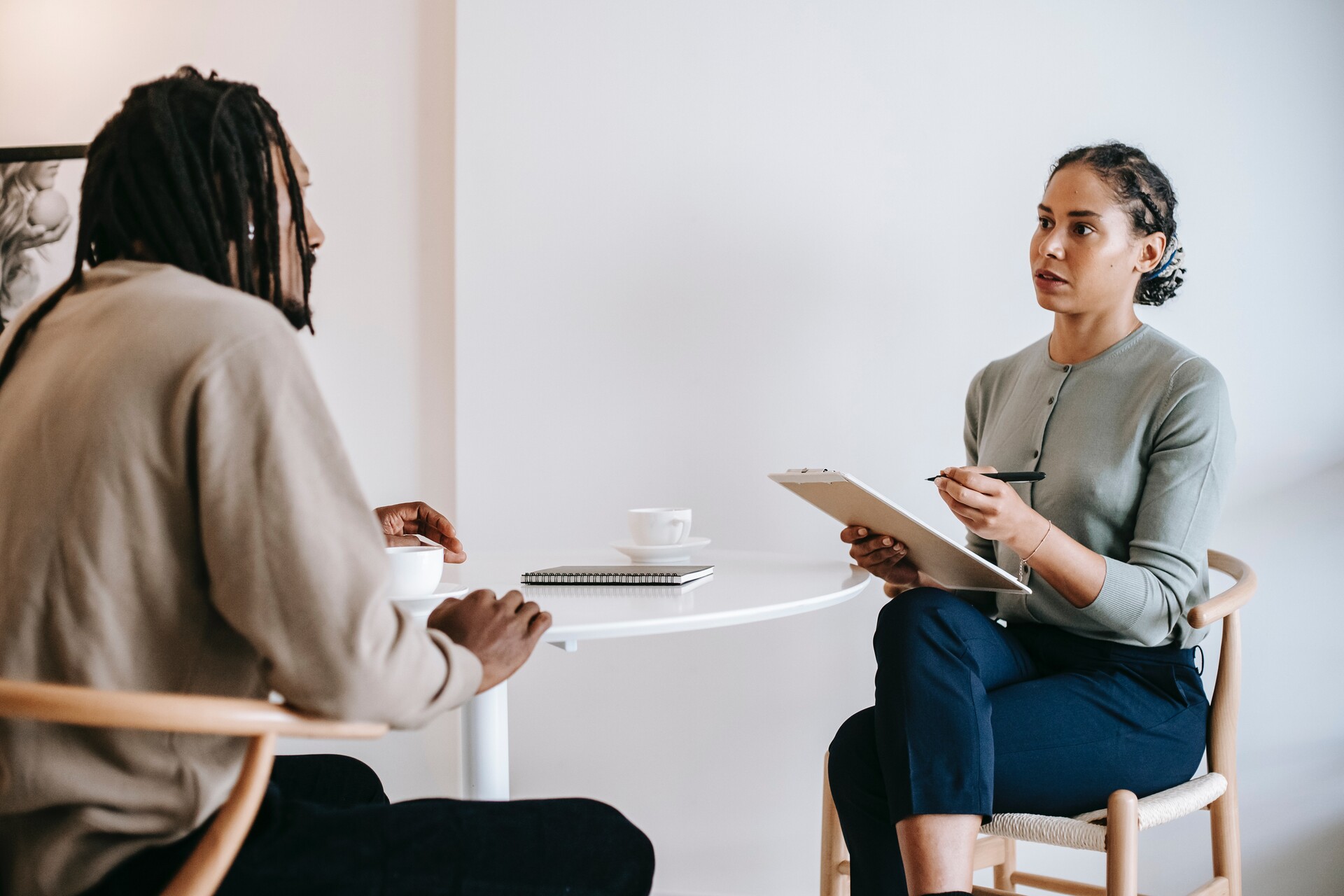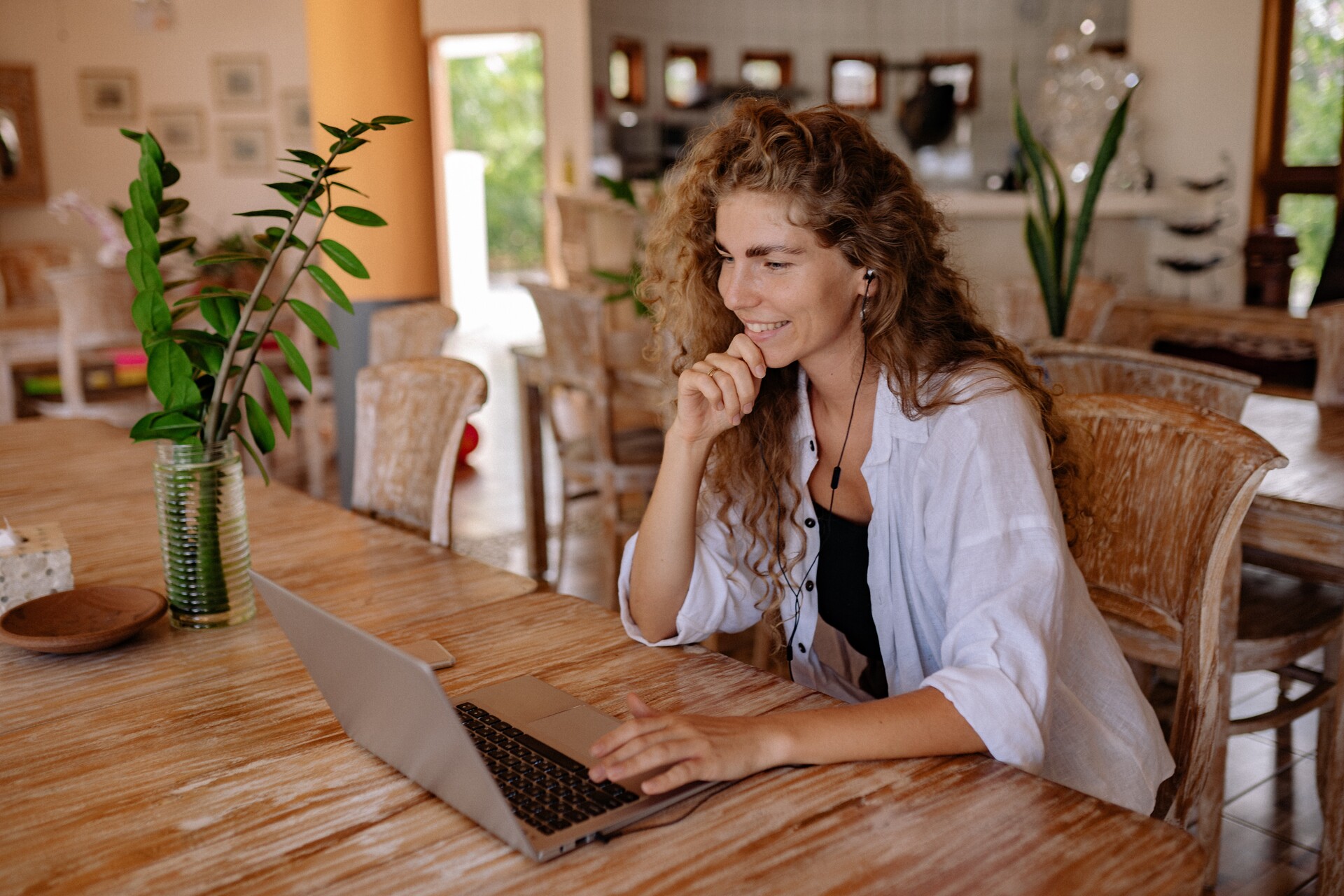How to prepare a perfect job interview
If you want to ace that interview you've had such a hard time getting, stay tuned because we'll tell you how to prepare for the perfect job interview, whether it's for your first job, or if you already have a few years of experience and are looking for your ideal position. Not only will you be one of the finalists, but you'll get the job. Make sure to write it down!

Learn all the details of your CV
Our first tip to make your interview a success is to learn all the details of your CV, from the first to the last letter. This, which at first glance may not seem necessary, will help you to go into the interview with more confidence and not to hesitate if you are asked for details about yourself, your education and your work experience. We know that you may be nervous when going for a job interview as you are facing a situation that you cannot control 100%, but clarifying doubts to the person interviewing you about your CV with confidence and precision is something you can control.
Research the company
This is something we often read about but not everyone prepares properly. It is essential that you do your research before the interview, not only to find out about your possible future workplace, but also to let the interviewer know that you are interested in being part of the company. Going to a job interview and not knowing how to answer the typical question: "what do you know about the company", can automatically mean being left out of the selection process.
What to prepare for the job interview? Well, in short, everything you can find out about the company: what they do, what they have done so far, where they are going, etc. You can check their social networks to find out a bit more about their communications, their "tone of voice", their target audience, etc., and even do a bit of research on who makes up the team. Also check out their mission and values to see how you could contribute and if you would fit in well with their company philosophy.
Make a note of any doubts you may have so you can ask interesting questions at the end of the interview. It all adds up!
Prepare for possible questions and practice your answers
We agree that a job interview takes us out of our comfort zone as it is a situation we don't quite control and we want to make the best impression in order to get the job. This can make us demand a lot from ourselves and make us nervous during the interview, which can cause us to have a hard time communicating properly. That's why it's important to prepare in advance for possible job interview questions so that you can communicate as fluently as possible and express what you want to at all times. You can do some research on websites such as Glassdoor, as they can give you an idea of the selection process and the questions that the company usually asks.

Depending on the interview and the company, sometimes you will be asked more complicated questions to see how you react and how you communicate (how long you have been unemployed, why you were fired from a previous job, etc. ). Don't panic! In this case, the most important thing is to stay calm and take a deep breath before you speak, so that you can focus on the idea you want to convey. If you have prepared well in advance, everything will go smoothly!
Please note that by slightly more difficult questions we don't mean questions that are too personal or could lead to discrimination. If you are asked questions related to your religion, race, gender or sexual orientation in your interview, remember that you are not obliged to answer them and that you can ask about the relevance of such questions to the job in question. If you feel you have been discriminated against in any way during your interview, consult a professional for advice on your options.
Highlight your strengths and skills for the role
The aim of a job interview is to find out if you are the right person for the vacancy on offer, so you should highlight all the skills that are necessary for the job. Even if you think you don't meet all the requirements, don't let this make you feel insecure. If you have an interview, it's because you have passed the first filter (and maybe some more) and the company is interested in your skills and in getting to know you better.
In addition, you need to know your weaknesses and be prepared to deal with them, as you may be asked about them. You should answer these questions diplomatically and without trying to prejudice yourself, but as honestly as possible, as the person interviewing you will value your honesty.
If you don't have a lot of experience, it's twice as important to emphasise what you know and what you think the company needs for the position. Many companies put attitude and skills before experience, so go for it! You don't need to sell yourself in a desperate way, but make it clear that you are a perfect fit for the position on offer and that by choosing you they will have made the best decision.
Bonus: tips for the day of the job interview

On the day of the interview you should take certain aspects into account so that everything goes perfectly, that's why we want to give you some extra tips on how to conduct a job interview once you have already prepared for it with the previous points:
- Try to rest properly the night before to have enough energy to face the interview at 100%.
- Dress appropriately. Think about the clothes you are going to wear to the interview in advance; this will depend on the type of company, so you can do some research beforehand on their website and social networks.
- Be punctual. If your interview is face-to-face, always arrive at least 5-10 minutes early. If it's online, prepare everything beforehand to make sure that your internet connection, webcam and microphone work properly and don't give you a hard time.
- Greet the interviewer in a polite and friendly manner. Due to security measures, if the interview is face-to-face, they may not shake your hand. If they do, shake hands firmly (without being too firm). Don't forget to respect the hygiene rules that the company has set up.
- Try to make a good impression at the beginning of the interview; a positive and approachable attitude will make you connect better with the person interviewing you.
- Make eye contact and watch your body language. Don't let your nerves get the better of you! Look the other person in the eye while you speak and try to maintain a neutral position that conveys closeness and confidence, but not excessively (don't gesticulate too much or hide your hands, don't cross your arms and legs or stretch out as if you were at home, etc. ).
- Ask about the next steps in the selection process if they haven't been made that clear beforehand, and say goodbye by thanking the person who interviewed you for their time.
At Erasmusu we know that being a student can be exhausting, that's why we want to be there for everything you need: from offering you the best student accommodation to helping you with your student job. Don't know how to prepare your CV to get an interview? Take a look at our post and discover the importance of preparing an eye-catching CV.
Photo gallery
Content available in other languages
Want to have your own Erasmus blog?
If you are experiencing living abroad, you're an avid traveller or want to promote the city where you live... create your own blog and share your adventures!
I want to create my Erasmus blog! →






Comments (0 comments)